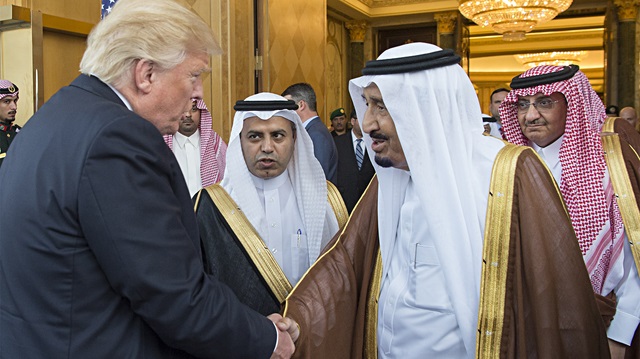
‘The timing of this is no coincidence,’ an American official told The New York Times
Saudi Arabia deposited $100 million into American accounts on Tuesday, the same day U.S. Secretary of State Mike Pompeo touched down in Riyadh to discuss the disappearance of missing journalist Jamal Khashogi with the Saudi king, crown prince and foreign minister.
The funds were allegedly part of financing pledged in August by Riyadh to the Trump administration for efforts to stabilize Syrian territories liberated from Daesh. “It was unclear when it would show up, if at all, until it suddenly landed in American accounts on Tuesday,” The New York Times reported.
“The timing of this is no coincidence,” an American official involved in Syria policy told The New York Times.
The alignment of the transfer and Pompeo’s arrival in Riyadh has raised questions. The top diplomat was in Saudi Arabia to discuss Khashoggi’s disappearance, a matter that has heightened tensions between Riyadh and many of its allies.
Claims have emerged that Riyadh is preparing a report acknowledging Khashoggi was killed as the result of an interrogation that went wrong. In an earlier article, the New York Times, citing a person familiar with Saudi plans, reported that the Saudi government would blame an intelligence official for a bungled operation.
Blaming Khashoggi's case on mistakes by lower-level personnel would allow the Saudi government to say it never sanctioned his disappearance, and could help to reduce international outrage over the affair, a banker in the Gulf said.
U.S. backing of such a conclusion would help shield Saudi Arabia from the fallout of such an acknowledgement.
“The specific transfer of funds has been long in process and has nothing to do with other events or the secretary’s visit,” Brett McGurk, the United States envoy to the coalition fighting Daesh said, dismissing claims that the visit is connected to the money transfer.
Combined with another $50 million from the UAE, the Saudi funding will enable U.S. presence in Syria to continue without dipping into Washington’s own pocket.
“The funds will be used by USAID and the State Department for a variety of programs, including infrastructure repairs and provision of health, education and sanitation services,” The New York Times reported.













